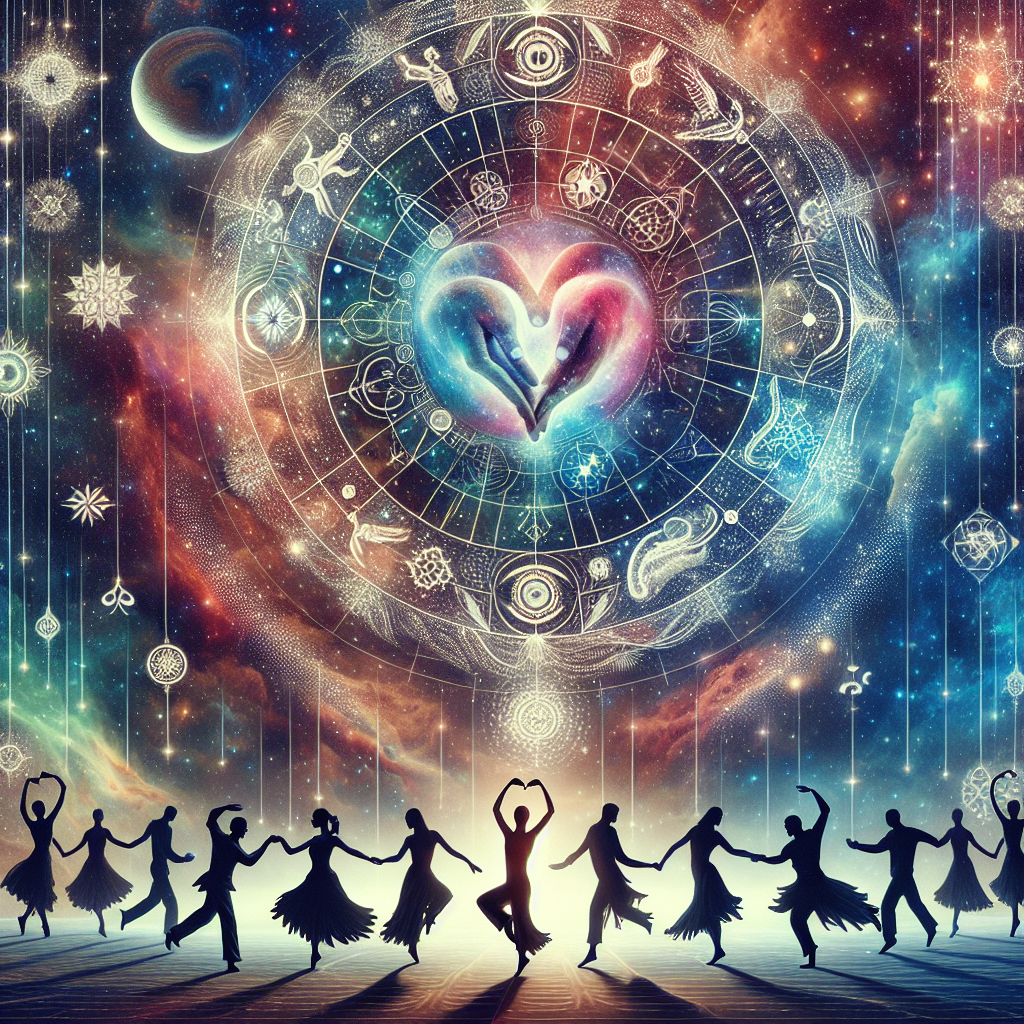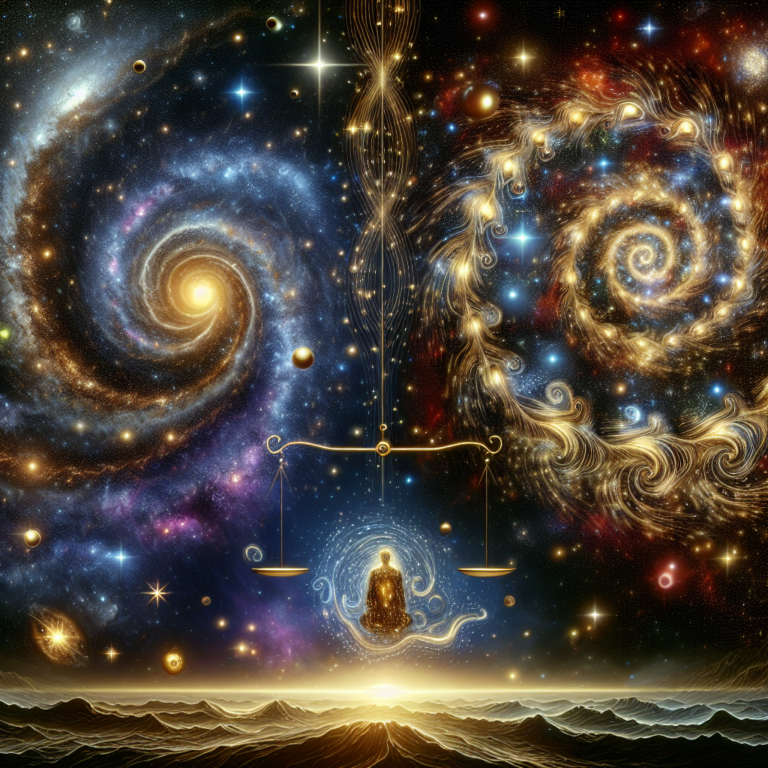Karma, a term derived from the ancient Sanskrit word "karman," means "action" or "deed." Its philosophical significance offers profound insights into how our actions shape our present and future experiences. At the intersection of karma is an often-overlooked yet potent force: forgiveness. This article delves into the intricate dance of karma and forgiveness, exploring their interconnectedness and their role in shaping our destiny.
The Essence of Karma
Karma can be understood through a simple principle: what we put into the world comes back to us. This principle operates on multiple levels – physical, emotional, and spiritual. Every action, whether positive or negative, generates an energy that reverberates back to the individual, affecting their lives in unforeseen ways.
Positive and Negative Actions
In the realm of karma, positive actions—acts of kindness, compassion, honesty, and love—are believed to generate positive karmic results. Conversely, negative actions—deceit, malice, anger, and betrayal—contribute to negative karmic outcomes. This cycle is not merely linear; rather, it unfolds in a complex interplay between our actions and their consequences.
Consider the story of two friends. One, who often volunteers and helps others in need, slowly finds his life flourishing with opportunities and joy. The other, who harbors resentment and often engages in deceitful practices, suffers from continual strife and hardship. In this narrative, we observe the dynamics of karmic energy aligning with the actions of each individual.
The Role of Forgiveness
Forgiveness is more than a virtue; it is a transformative practice that releases the burden of negativity from our lives. It is essential to recognize the power of forgiveness as a tool for personal liberation. Anger and resentment can create heavy karmic chains, binding us to a cycle of suffering. By extending forgiveness—whether to others or ourselves—we can transmute negative karmic energy into positive outcomes.
Forgiveness and Its Impact
Restoring Inner Peace: When we forgive, we release ourselves from the grip of bitterness and resentment. This liberation brings about inner peace, allowing us to center ourselves and create a reality that is conducive to positive karma.
Breaking Cycles: Forgiveness helps break the cycles of pain that may plague our relationships. By forgiving others, we no longer perpetuate the negative patterns that keep us locked in karmic loops. Instead, we open pathways to healing and renewed relationships.
Creating Positive Energy: Acts of forgiveness generate positive energy that can radiate outward. When we let go of past grievances, this energy can attract positivity into our lives, leading to more harmonious experiences.
- Enhancing Empathy: Forgiveness enhances our capacity for empathy, enabling us to understand the perspectives of others. This understanding fosters compassion and nurtures healthier relationships, which, in turn, cultivates positive karma.
Forgiveness as a Karmic Catalyst
To understand how forgiveness shapes our destiny, we must recognize it as a catalyst for transformative change. When we choose to forgive, we make a conscious decision that facilitates personal growth and evolution, both for ourselves and those around us.
The Process of Forgiveness
Forgiveness is not merely a one-time act but a process that often involves several stages:
Acknowledgment: To forgive, one must first acknowledge the hurt or wrongdoing. Denying our feelings can hinder the forgiveness process.
Empathizing: Gain an understanding of the motives and circumstances surrounding the action. Empathy allows us to connect with the humanity of the person who caused the pain.
Releasing Resentment: Letting go of anger and resentment is a crucial step. This may require time and effort, but it is ultimately liberating.
Rebuilding Trust (if applicable): Depending on the situation, rebuilding trust may be possible. This involves open communication and a commitment to change.
- Embracing Compassion: Finally, it is essential to embrace compassion towards ourselves and others. This compassionate mindset fosters healing and positivity.
The Transformative Power of Forgiveness
The act of forgiveness can ignite a powerful shift in our karmic trajectory. Imagine someone who was wronged, carrying the weight of their grievances for years. When they finally forgive, they not only liberate themselves from the chains of the past but also create space for new, positive experiences. Their willingness to let go can lead to unexpected opportunities, deeper connections, and an overall sense of joy and fulfillment.
The Interconnectedness of Our Paths
The dance of karma and forgiveness reveals the interconnectedness of our lives. Our actions, fueled by our ability to forgive, create a ripple effect that extends beyond our individual experiences. Engaging in positive actions and seeking forgiveness not only impacts our destiny but also shapes the destinies of those around us.
Community and Collective Karma
As individuals within a community, our karmic actions influence collective karma. When forgiveness is practiced widely—whether in our families, workplaces, or social circles—it nurtures a culture of understanding and compassion. This collective energy contributes positively to mutual relationships and personal growth.
Conclusion
Understanding the dance of karma and the transformative nature of forgiveness allows us to take an empowered approach to our lives. Each choice we make, every action we take, reverberates through the tapestry of our existence. By embracing forgiveness, we don’t just change our destiny—we also influence the destinies of countless others around us, fostering a more compassionate world.
FAQs
Q1: Is forgiveness necessary for personal healing?
A: Yes, forgiveness can be a crucial part of personal healing. It helps individuals release negative emotions, leading to improved mental and emotional wellbeing.
Q2: Can one forgive without forgetting?
A: Yes, forgiveness does not require forgetting the harm done. It is about letting go of the hold that negative experiences have over us.
Q3: How does one begin the process of forgiveness?
A: Beginning the process involves acknowledging the emotions involved, empathizing with the other party, and consciously choosing to let go of resentment and anger.
Q4: Does forgiveness mean condoning the behavior?
A: No, forgiveness does not imply that you condone the behavior. It is simply an acceptance of the past to free yourself from its emotional burden.
Q5: What are the long-term benefits of forgiveness?
A: Long-term benefits of forgiveness include improved mental health, healthier relationships, a greater sense of peace, and the ability to attract positive experiences in one’s life.
Of course! What kind of prompt are you looking for? It could be for writing, art, coding, brainstorming ideas, or something else entirely. Let me know your focus or theme, and I’ll provide a prompt for you!, #Dance #Karma #Understanding #Forgiveness #Shapes #Destiny, #Dance #Karma #Understanding #Forgiveness #Shapes #Destiny, 1735521314, the-dance-of-karma-understanding-how-forgiveness-shapes-our-destiny





